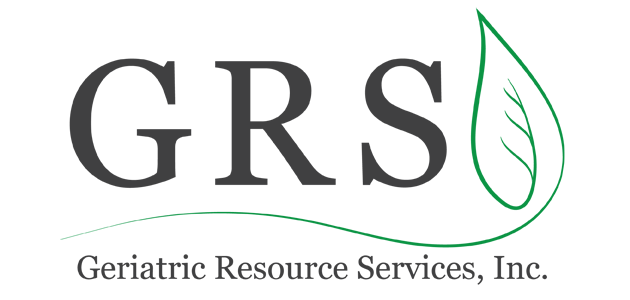Aging Well in the Upstate
Helpful tips for family caregivers
October/November 2012
With holiday visits coming up, you may observe problems that you weren’t aware of before. These articles offer guidance to help you help your loved one.
Five signs your parents may need help
It’s easy to know what to do when a parent has a medical crisis: Go to the ER. But without the red flags of an emergency, it can be hard to know if there’s a health problem that needs attention.
Often, there are subtle signs of trouble brewing.
- Have your parents lost weight? Unplanned weight loss may indicate a medical condition, such as depression or cancer. Or vision problems that make cooking difficult. Or dental problems that make chewing painful.
- How is their appearance? Are their clothes clean? What about bathing and grooming? Unkempt appearance may signal depression or dementia.
- Do they seem safe in their home? Are there signs of falls, such as dents in the walls? Is there a system for making sure pills are taken? Scorched pans in the kitchen? Spoiled food in the refrigerator?
- Have they lost interest in their usual activities? Are they withdrawing from friends or dropping hobbies? These could signal pain, depression, or another health issue.
- How well are they getting around? Are they steady on their feet? Able to walk without problems? Any difficulty climbing stairs or getting out of a chair?
When you have concerns,
- talk with your parents. Tell them what you’ve noticed and why you are concerned. Ask them how you can help, and then LISTEN.
- get the doctor involved. If your parents refuse a doctor’s exam, send a note to the doctor outlining what you have observed. That way, the doctor can follow up at the next regular appointment.
- solve problems together. Explore their preferences for handling the situation. Consider a family meeting so everyone can share in the discussion. You might also consult a geriatric care manager for help identifying possible solutions.
- be patient. If you encounter resistance, take a step back. People often need time to think about what has been discussed. Rushing can just build resentment.
Return to top
Talking with Dad about his hearing loss
Hearing loss affects 50% of people over age eighty-five, most commonly men.
Poor hearing diminishes quality of life. It may bring on frustration in daily interactions with others. It can even be at the root of withdrawal from social activities, depression, anxiety, paranoia, and memory issues.
Even so, many elders deny they have problems with hearing or don’t seem to want to deal with it. One common reason is stigma. They may feel that people with hearing loss are stereotyped as older, less capable, and dull. (Who wants to join that club?) Not admitting the problem helps maintain needed self-esteem.
If you suspect your family member has hearing loss:
- Learn if they think there is a problem. Explore gently. “You’ve gotten very quiet at family dinners. Has something changed?” See if your relative is disturbed about times they haven’t heard something and have been confused or frustrated afterwards.
- Is there something that is actively bothersome for them? If there’s something they like but feel thwarted in doing—hearing the conversation in a restaurant, understanding the audio in a movie—this could be a motivator for action.
- Learn what they know about solutions. If your loved one identifies problems with hearing, explore the topic of solutions. See what reasons are given for not taking action.
- Acknowledge their concerns. Don’t discount what might appear to be vanity. Instead, talk about how small hearing aides have gotten. Also about the drop in price with new over-the-counter versions.
- Identify others with hearing loss. Give examples of people your relative knows and respects who have addressed their hearing loss. Perhaps your family member would feel comfortable contacting them for tips and lessons learned.
- Recommend an exam by a doctor. Fixing the problem may not require hearing aids. Hearing loss could be from a buildup of earwax. Or a medication side effect. Seeing the doctor could be the first step to a solution.
What is hospice?
Hospice is a practice of specialized care for individuals nearing the end of life. But it is not just for the last few days. In fact, Medicare pays for months of free services to patients and their families. For instance:
- Do you wish you had help with bathing your loved one?
- Are you worried about keeping your relative comfortable and out of pain or suffering?
- Do you wish you had 24/7 access to medical advice?
Hospice offers these services and more. Its goal is to support the patient and family emotionally, physically, and spiritually.
With hospice care, your relative receives regular home visits from
- a nurse who comes to manage pain, nausea, and other uncomfortable symptoms;
- a social worker with advice about local programs to help with special needs;
- a trained volunteer who can stay with your relative once a week so you can have a needed 2-3 hours off.
Such services are free to persons on Medicare who meet these eligibility requirements:
- An incurable condition
- A doctor’s assessment that the patient is not likely to live longer than six months
- Willingness to let go of curative treatment
With an emphasis on quality of life, hospice is the choice for patients who would rather enjoy the time they have left than continue with repeated hospitalizations and ER visits. It’s also good for patients who are tired of dealing with the side effects of treatment that offers only a slim chance of recovery.
If you think your loved one could benefit from hospice care, ask the doctor a simple question: “Would you be surprised if [your relative] were to die in the next year?” If the doctor says “no,” then it’s wise to talk about if/when hospice would be a good choice. In hindsight, many families say they wish they had signed up sooner.
Return to top


